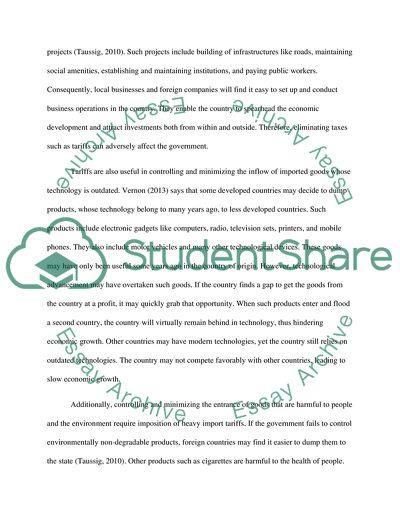Cite this document
(“Pros and Cons of Tariffs Essay Example | Topics and Well Written Essays - 1250 words”, n.d.)
Retrieved from https://studentshare.org/macro-microeconomics/1695521-pros-and-cons-of-tariffs
Retrieved from https://studentshare.org/macro-microeconomics/1695521-pros-and-cons-of-tariffs
(Pros and Cons of Tariffs Essay Example | Topics and Well Written Essays - 1250 Words)
https://studentshare.org/macro-microeconomics/1695521-pros-and-cons-of-tariffs.
https://studentshare.org/macro-microeconomics/1695521-pros-and-cons-of-tariffs.
“Pros and Cons of Tariffs Essay Example | Topics and Well Written Essays - 1250 Words”, n.d. https://studentshare.org/macro-microeconomics/1695521-pros-and-cons-of-tariffs.


